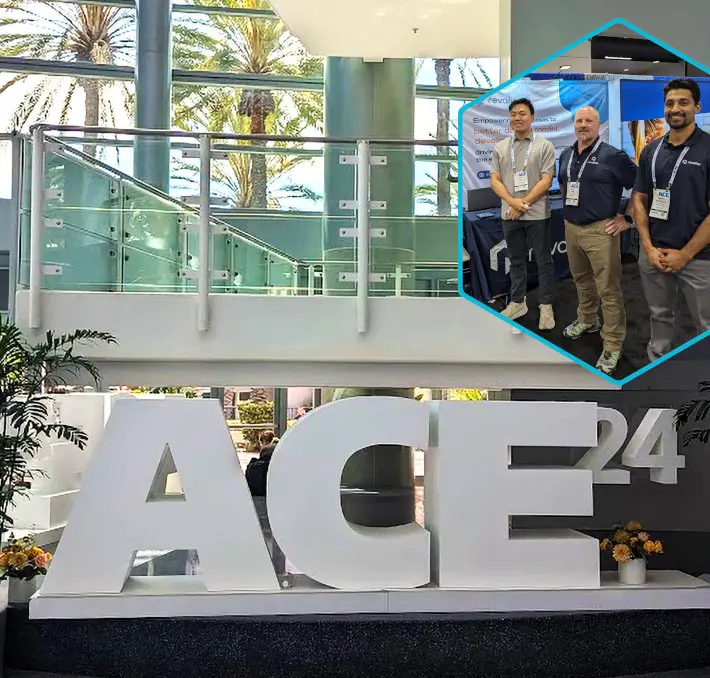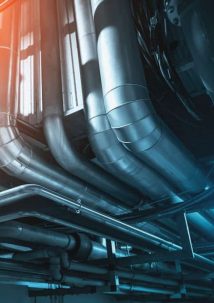
The ACE24 conference—hosted by the American Water Works Association (AWWA) in sunny Anaheim, California—was a powerhouse of innovation and insight, bringing together over 10,000 industry leaders and professionals to share ideas, discuss ongoing challenges, and explore new solutions.
The theme of this year’s AWWA fluid handling event was sustainability, setting the stage for meaningful conversations about the future of water management. Our team attended the event and came away inspired and excited to share our insights. Here are the three key takeaways from ACE24 we believe are crucial for advancing the industry.
In line with the overall theme of sustainability, energy conservation was a major topic at ACE24. Rising energy prices and strict environmental regulations make the need to optimize energy usage in water management systems more crucial than ever. The conference highlighted practical strategies to cut energy consumption and operational costs, aligning economic goals with sustainability.
To address these challenges, PIPE-FLO—a cutting-edge fluid handling software solution from Revalize—provides precise energy modeling and simulation, enabling users to design systems that minimize energy consumption, maximize efficiency, and reduce costs substantially. In the PIPE-FLO environment, engineers can visualize and analyze system performance, identify inefficiencies, and implement effective energy-saving measures. This proactive approach ensures that energy conservation efforts are both impactful and sustainable, helping organizations achieve significant cost savings.
A real-world example of PIPE-FLO’s impact can be seen in a case study involving a North American pulp and paper mill. The mill faced outages and service disruptions, and they needed to maintain maximum flow with a new remote storage tank. Engineers used PIPE-FLO to digitally replicate their existing system for analysis, and to simulate various possible upgrades. They found that implementing a variable speed pump with a booster pump was the most efficient solution, using 1300 MWh of energy, costing $129,995, and achieving a 74% total weighted efficiency (TWE).
With the rapid advancement of fluid handling software and technology, we found it surprising to learn how many systems still rely on spreadsheets for managing fluid systems. Although this practice involves time-consuming manual processes with a high risk of errors (a single mistake in a formula can throw off the calculations for an entire system!), this was a recurring topic we encountered at ACE24, particularly among smaller systems.
During the conference, our team uncovered two widespread myths: (1) fluid handling software is only for larger systems, and (2) there’s no real benefit for smaller systems to move away from spreadsheets. However, contrary to popular belief, even the smallest water management setups see significant improvements from upgrading to modern fluid management software.
In addition to reducing the possibility of error, PIPE-FLO saves valuable time. Customers who switched from spreadsheets have seen the time it takes to complete complex tasks go from days to mere hours. This shift not only enhances accuracy but also frees up engineers to focus on more critical tasks, demonstrating substantial time savings for systems of all sizes—including even the smallest systems.
Another hot topic at ACE24 was the importance of Digital Twins, an industry term for 1:1 recreations of real-world fluid handling systems with accurate simulations of their performance. These precise virtual replications are crucial for scalability, safety, energy optimization, and even B2B sales.
PIPE-FLO integrates Supervisory Control and Data Acquisition (SCADA) systems to replicate complex physical systems for real-time monitoring and control. This enhances simulation accuracy, enabling predictive maintenance and optimization. Users, including municipalities and water management companies, can replicate existing systems to assess different scenarios and visualize infrastructure expansions before implementation.
Additionally, parts manufacturers can use PIPE-FLO to replicate customer systems, providing detailed mockups and simulations of how products like pumps and valves will perform. This allows customers to make informed purchasing decisions. This dual use of system replication makes PIPE-FLO an invaluable tool for optimizing water management systems at all levels.
The ACE24 conference highlighted critical trends and challenges in the water industry—from the need for energy conservation, to the decline of spreadsheets in favor of more tailored fluid handling software programs, and the importance of 1:1 digital system replications and simulations. These insights underscore the value of PIPE-FLO, a cutting-edge solution which addresses these challenges head-on by providing users with the tools to optimize their systems, enhance efficiency, and to ensure safety and accuracy.
At Revalize, we recognize the vital role of the water management industry, and we are committed to providing cutting-edge solutions to drive progress and sustainability. We look forward to seeing you at next year’s AWWA conference!
